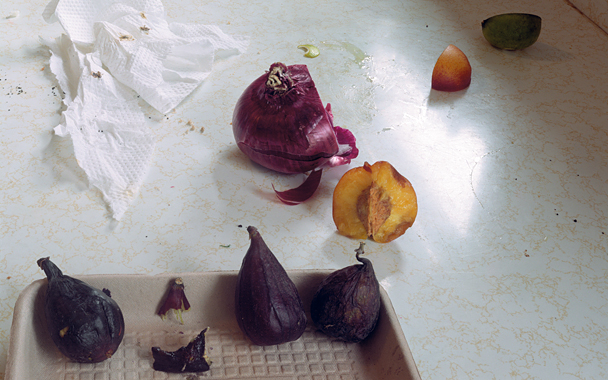On the day after Easter I dropped by the Fat Hen, our town’s natural food store, to see what looked good for Monday night’s dinner: perhaps some foraged fiddleheads or early local greens and something tasty to toss on the grill, like grass-fed sirloin, local pork chops, wild sockeye salmon…
But the building on aptly named Green Street was dark, and a handwritten note taped to the inside of the door said that “the Hen,” as everyone called it, had been forced to go out of business. When I encountered one of the former clerks on the street later in the week, she said that things had been going well until last fall, when business suddenly dried up.
That didn’t surprise me. I’d read all the headlines about how organic sales were tanking as recession-wary consumers counted every penny. With giants like Whole Foods Market taking a financial hit, little wonder a small, local, high-quality store couldn’t weather the recession in a Vermont town of 2,500 residents.
Organics had been one of the go-go markets of the past decade, racking up sales increases of 20 percent per year, rising from $1 billion in 1990 to $23 billion last year. But sales of gas-guzzling SUVs had also surged. Were the two linked? Was organics merely another trendy way for the upper middle classes to flaunt their excess cash and then to be dropped the moment times got tough?
It sure looked that way at the end of last month when grocery trade magazines ran the headline, “Sales of Organic Products Dive With Recession.” The stories were referring to a news release about an analysis conducted by The Nielsen Company.
But when I read the reports closely, I was perplexed. It appeared that the headlines were wrong. Neilsen’s research actually said that in March of this year, the organics market’s growth had slowed to a rate of one percent a month. If that rate continues, organic sales will actually rise by 12 percent this year. Well shy of the boom years’ 20 percent, but at a time when overall grocery sales are flat, double-digit increases are far from being a “dive.”
Sure enough, a day after the initial release, Neilsen changed the headline to a more accurate, if less dramatic, “Growth of Organic Sales Slows with Recession.”
There was even more reassuring news this week. The Organic Trade Association reported that organic food sales grew by a “whopping” 15.8 percent in 2008.
I only wish my IRA had fattened by that amount.
“Organic products represent value to consumers, who have shown continued resilience in seeking out these products,” Christine Bushway, the trade association’s executive director, said in a release.
That resilience was evident earlier this week, when a meeting was called to gauge interest in re-launching the Fat Hen as a co-op. More than 100 people, with ages ranging from eight months to 80-plus years, filled the building on Green Street. Late-comers had to form a scrum peering in through the open doors from the sidewalk outside. The manager from the nation’s second largest co-op up the highway in Burlington, who was on hand to offer advice on how we could get started, expressed amazement at the turnout.
The experts tell us the economy is in tatters, but the enthusiasm of the gathering showed that there is a future for organics—and, with luck, for the Fat Hen, too.




 Pinterest
Pinterest


